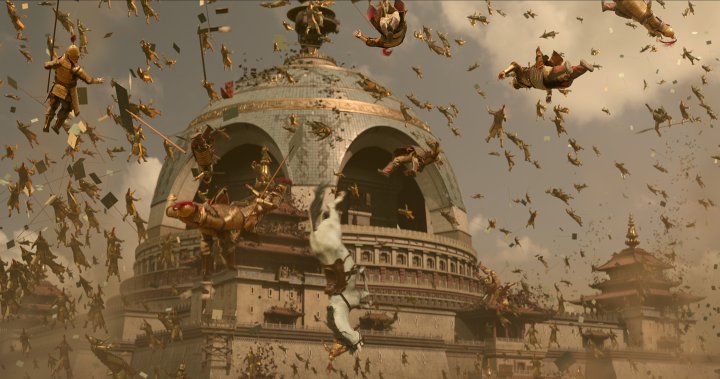Netflix’s 3 Body Problem, based on a 2008 novel by Liu Cixin and brought to the small screen by Game of Thrones creators D.B. Weiss and David Benioff, has sparked fascination and controversy. The series tells the story of an impending alien invasion of Earth, portraying some science that has left viewers with questions and historical events that have upset some in China. A three-body problem relates to the gravitational pull and interactions between three astronomical bodies, like planets or suns, impacting each other’s orbits. Understanding this begins with a two-body problem, such as the moon and Earth, which has been solved since Sir Isaac Newton’s work on gravity.
A two-body problem involves two astronomical bodies, like the moon and Earth, in a stable and predictable orbit due to gravity. However, a three-body problem, involving three astronomical bodies like planets or suns, is much more complex and less predictable due to changing distances and forces impacting the orbits. An “n-body” problem, involving any number of objects exerting gravity on each other, is even more challenging to calculate. These problems could potentially result in objects colliding or being ejected into space, disrupting or destroying life on a planet. The three-body problem in the Netflix show refers to three suns, with the Trisolaran people living on a planet caught between them.
The aliens in the show want to invade Earth to live on a planet with a stable two-body problem. They use quantum entanglement to project and receive information across the universe from Trisolaris to Earth. Quantum entanglement involves specific characteristics of subatomic particles, such as protons, allowing the exact states of one particle to be mimicked by another. The show also explores the possibility of propelling a spaceship forward by detonating nuclear bombs in space, which is theoretically possible and has been considered in the past. The show combines science fiction elements with portrayals of historical events, such as the Cultural Revolution in China.
One controversial aspect of the show is its portrayal of events, such as the Cultural Revolution in China, which began in 1966 under the leadership of Mao Zedong. The CCP mobilized Chinese youth against the bureaucracy, leading to extreme violence, with tens of thousands of people beaten to death, public executions, and cannibalism. The show’s depiction of these events has sparked criticism in China, with some suggesting that foreigners are embarrassing the country by showing such a tumultuous time. However, the novel that inspired the series, written by a Chinese author, Liu Cixin, won the prestigious Hugo Award in 2015 and has been translated into English.
The decision to adapt the book faced criticism in 2020 due to comments by Liu about Uyghur Muslims, with five Republican senators calling on Netflix to reconsider. Netflix defended the decision, stating that Liu was the author of the books and not the creator of the series. While the show combines science fiction with historical events and controversial themes, it has captured the attention of viewers and sparked debate about the intersection of fiction and reality. The series has received both praise and criticism for its storytelling, scientific concepts, and portrayal of historical events, making it a complex and thought-provoking viewing experience.


